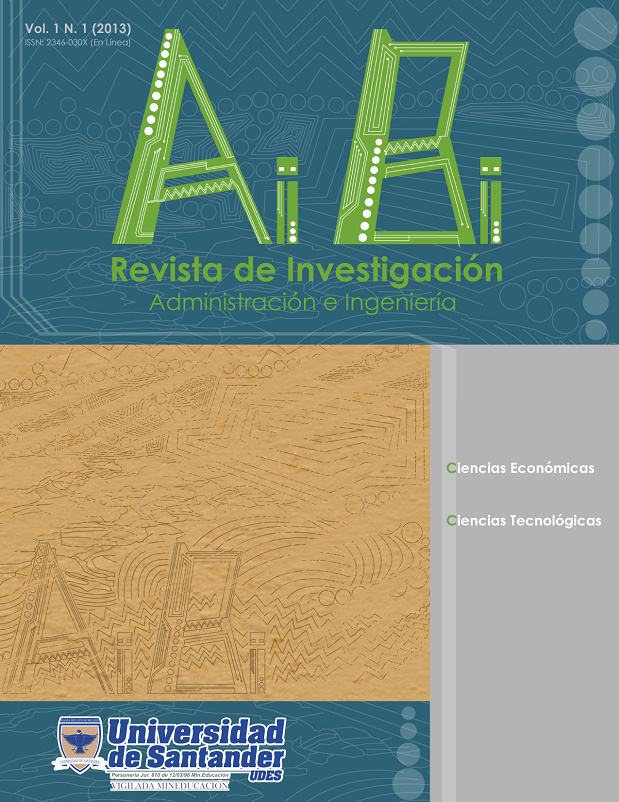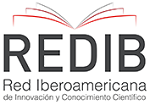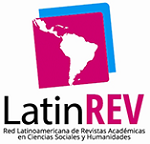Características de los gerentes educativos para lograr, a través del liderazgo transformacional, organizaciones inteligentes en las universidades. Caso: UNET.
Keywords:
Transformational Leadership, Educational Management and Intelligent Organizations.Abstract
The manager directs university education, directs and encourages actions that need to be undertaken in a unit or college, strategically
guided in its operation by its vision, mission, values, goals and shared educational policies, through a positive organizational climate university
conducive constant change, led by a leader who encourages participation , intellectually stimulate their employees, AUPE creativity, initiative,
research, individualized attention, drive the widespread use of ICT in general support team learning together for a learning organization that can
achieve a university of excellence. The research was conducted under the qualitative epistemological approach, based on the ethnographic
method. Was used for data collection techniques, participant observation, surveys open questionnaire and semistructured interview. For analysis
of the results we used the technique of triangulation of the data in each technique, among techniques, then developed theoretical approaches.
The results showed that most of the UNET educational managers have the characteristics of a good manager, does not possess the characteristics
of a transformational leader also found that if learning. The findings were verified they have good attitude towards leadership, leadership is
democratic, legal and effective organizational learning exists. Finally made important theoretical contributions.
References
S. P. Robbins, Comportamiento Organizacional. México: Editorial
Prentice Hall. México, 2004.
J. H. Quintero Rojas, Del Clima Organizacional a las Instituciones
Educativas en Aprendizaje. Artículo Publicado en la Revista Dialéctica.
Revista arbitrada e indizada en REVENCYT Publicación bajo el
Código: RVDO11con ISSN: 1316-7243 y Depósito Legal No
pp1999802TA777 para la versión impresa y con el ISSN: 2244-7490
y Depósito Legal No ppi201102TA3812 para la versión electrónica.
Universidad Pedagógica Libertador. Instituto Pedagógico Rural
¨Gervasio Rubio¨. Rubio, Táchira. Venezuela, 2011.
S. P. Robbins, yT. Judge, (2009).Comportamiento Organizacional.
Decimotercera edición.México: Pearson Educación. Prentice Hall.
México.
I. Chiavenato, Introducción a la Teoría General de la Administración.
México: Editorial Prentice Hall. México, 2.004.
A. Goncalves, Dimensiones del Clima Organizacional. Disponible
en: http://www.educadormarista.com/proyectoaprender/climaorganizacional.
htm[Consulta: 2010, Junio15], 1997.
D. Ortiz, A. Ríos, y A. Vargas del Rio, La Gestión del Ambiente
Creativo como Mecanismo para impulsar la Innovación en la
Empresa.Revista Creando de la Universidad Nacional de Colombia.
Sede Manizales. Año 2. No 4. Disponible:
http://www.maizales.unal.edu.co/modules/unrevcreando
/documentos/RevistaAbril 2005.pdf [Consulta: 2011, Agosto15],
J. H. Quintero Rojas, La Transcomplejidad de la Gerencia.
Artículo Publicado en la Revista Dialéctica. Revista arbitrada Honoris
Causa con Depósito Legal No ppl201102LA39 para la versión
electrónica, con el ISBN: 22141-8217. Disponible:
h t t p : / / w w w. u n y. e d u . v e / p u b l i c a c i o n e s / H o n o r i s -
Causa/vol3num2/v3n2a2 quintero.pdf Universidad Yacambú. Barquisimeto,
Venezuela, 2012.
M. Martínez Miguélez, La Investigación Cualitativa Etnográfica
En Educación. Manual Teórico-Práctico. Editorial Trillas. México,
México, 2007.
X. Vargas Beal, (2011). ¿Cómo Hacer Investigación Cualitativa.
Una Guía Práctica para Saber que es la Investigación en General y
como Hacerla. (con énfasis en las etapas de la investigación
cualitativa).Disponible en:
http://es.scribd.com/doc/48098212/%C2%BFComo-hacerinvestigacion-
cualitativa-LIBRO-DE-TEXTO. [Consulta: 2011,
Septiembre 12].
Universidad Pedagógica Experimental Libertador UPEL Manual
de Trabajos de Grado de Especialización y Maestría y Tesis Doctorales
a edición Reimpresión 2011. Fondo Editorial de la Universidad
Pedagógica Experimental Libertador. Caracas, Venezuela. (2010).
M.J. Mayán, Una Introducción a los Métodos Cualitativos:
Modulo de Entrenamiento para Estudiantes y Profesionales. Universidad
Autónoma Metropolitan. Istapalpa, México, 2001.
E. Chacón, (2004, Octubre). El Uso del /Atlas/TI como herramienta
para el análisis de datos cualitativos en Investigaciones Cualitativas.
Ponencia presentada I Jornadas Universitarias
Competencias Socio-Profesionales de las Titulaciones de Educación
UNED- Madrid. España.
M. Martínez Miguélez, La Psicología Humanista. Un nuevo
paradigma psicológico.México:Editorial Trillas. México, 2006.
Downloads
Published
How to Cite
Issue
Section
Downloads
License
The journal offers open access under a Creative Commons Attibution License

This work is under license Creative Commons Attribution (CC BY 4.0).








